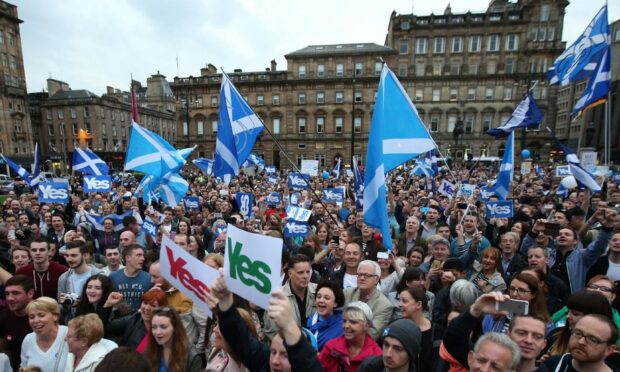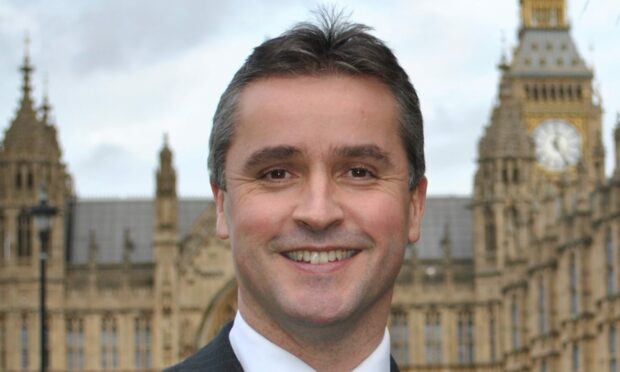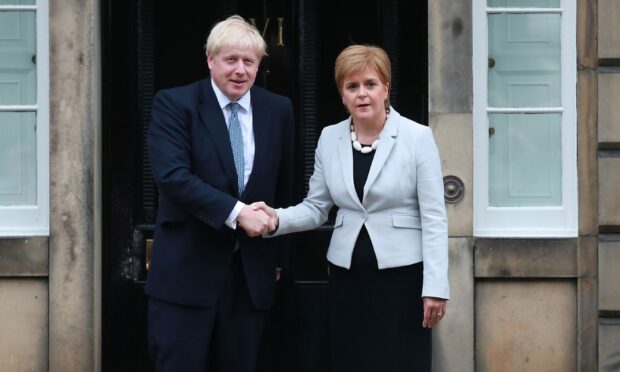Events in politics may now mean for certain that a referendum on Scottish independence is blocked and the only avenue to ask the population the question on independence is at an election, says SNP MP for the Western Isles, Angus MacNeil.
This month’s Supreme Court decision on blocking Scottish Parliament bills was a seismic event which could affect the independence process for Scotland for years to come.
The court told Scotland, pretty bluntly, what we all should actually know, that power devolved is power retained, and Scotland’s parliament is not the most powerful parliament in Scotland.
129 MSPs of all the parties, who all backed the legislation incorporating the UN Convention on the Rights of the Child, as well as the European Charter on Local Self Government, thought this legislation was within the powers of the Scottish Parliament – but it was not.
Holyrood is, indeed, closer to a council than a sovereign parliament, clearly a trapped vassal.
Perhaps the politicians can be excused given three groups of lawyers likely thought similarly. Namely, the Scottish Government’s lawyers, the Scottish Parliament’s lawyers and the Scotland Office’s lawyers all, thought the same, (the latter of course being the lawyers of Tory Secretary of State Alister Jack), for these Bills to reach Royal Assent stage.
All have been reminded that Holyrood is, indeed, closer to a council than a sovereign parliament, clearly a trapped vassal, which might come as a surprise to most at Holyrood.
Recently I went to a Holyrood Magazine award ceremony – I am not often around Holyrood – and was seated at a table with some convivial Labour and Tory MSPs.
‘They sing in their chains like the sea’
What struck me about the event is that all MSPs see themselves as parliamentarians in a proper parliament and vassals of no one.
Alas to paraphrase Dylan Thomas: “They sing in their chains like the sea.”
Now the Supreme Court has just reminded the Scottish Parliament that they have had clipped wings from the outset, as opposed to being the body that clipped their wings, as some construe the Court’s ruling. The Court is the referee making judgements on the law as it stands.
Therefore, the question arises, what will happen to a contentious Referendum Bill, where MSPs and three groups of lawyers will certainly not agree, with many voices convinced that this too is outside the powers of the Parliament.
‘Forlorn hope’
Indeed, the SNP’s architect of the “11-point plan” for a referendum in this Scot Parliamentary term, incorporated a visit to the Supreme Court at Point 10, reaching Point 11 may well be a forlorn hope. I certainly would not bet on the Scottish Government managing to hold a referendum.
Some people in the only debate forum we have had in this area, Twitter, feel that any denial of a mandated referendum is riding roughshod over democracy, it may well be, and I have every sympathy, but such an opinion is not considering the vassal creature that is the Scottish Parliament.
A referendum is likely to be blocked regardless of the party in power in Scotland whether it be the SNP, Greens, Alba or the man in the moon.
The Scottish Parliament looks to be no freer in organising a referendum on Scottish independence, than the Comhairle nan Eilean Siar might be to have a referendum for rescinding the 1266 Treaty of Perth and return the Hebrides to Norway.
Either body, the council or the Scottish Parliament may get a mandate for something, but if it is not within their powers to deliver, they therefore cannot.
This is not to say all is lost for independence, it is just to say that a referendum is likely to be blocked regardless of the party in power in Scotland whether it be the SNP, Greens, Alba or the man in the moon.

The flipside is that the Tory Government at Westminster are clearly very anxious that the Scottish people do not get asked on independence. Hence, they will do all they can to prevent the Scottish people giving a verdict on the issue.
The best way the UK Government sees to achieve that end, is ensuring their vassal Scottish Parliament cannot hold a referendum, by blocking the asking of a question, because the answer could be problematic for them. If the Scottish people demonstrate a democratic desire for independence, this a problem for Tory Westminster does not want to arise.
Even with a referendum effectively ruled out, the Tories will still raise it as an issue not because it has a chance of happening but because it will keep their unionist voters twitchy and anxious, and the Tories hope they will continue to almost unthinkingly vote Tory for reasons of constitutional angst.
Use the election
If referendums are indeed to be blocked, due to lack of power at the Scottish Parliament, then the clever thing to do will be to use elections, in fact it will be the only ballot-box option left open. Elections also happen every five years which may console nationalists needlessly nervous of losing a referendum.
The alternative to a referendum on independence is not unthinkable – it is humdrum now! Further we should not wallow in the “tranquilising drug of gradualism” as Martin Luther King might have cautioned. For the good of society, national and international, we need an urgency in Scotland.
Some cynics may feel that sharp minds in the Scottish Government are quite aware the Referendum Bill will falter and hence there is no rush to push the Bill in Holyrood.
Later disappointment is better than early disappointment from an activist management point of view. Who would want to face activists when pertinent warnings for a Plan B have been wilfully ignored?
Is it time for Plan B?
However, it must be dawning now on the few minds that were too thrawn to allow a debate on “Plan B” in the last few years, that now there is probably no other option but to use an election for independence. It was quipped before the 2021 election that the 2026 election would be the 2021 election for slow learners. Let us hope that the 2031 election is not therefore the 2026 election for the most stubborn of slowest learners.
Best we all get our heads around the simple fact that there likely will be no referendum before the next Scottish election, which for the purposes of a majority and the franchise, will be the next best independence opportunity.
Independence needs the permission of the people and can neither be declared or indeed conversely denied by opposing sets of politicians. There is always hope, with clever moves reacting to an opponent’s strategy and even a vassal parliament can pull off a checkmate, but only if we can capture the will of the people for independence in the ballot boxes of Scotland.


